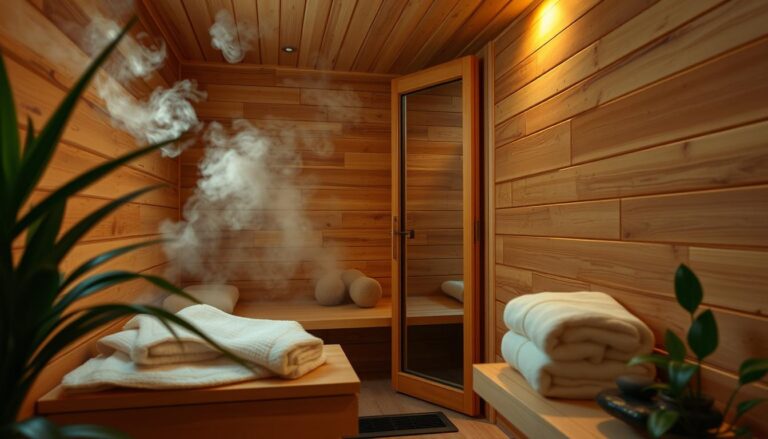In today’s fast-paced world, stress has become a daily challenge for many. From work pressures to personal responsibilities, stress can take a toll on your physical and mental health. Luckily, there are various ways to combat this constant tension, and one of the most effective and enjoyable methods is sauna therapy.
Whether you’re new to saunas or already incorporate them into your wellness routine, sauna therapy offers remarkable stress-relieving benefits. In this guide, you’ll learn how sauna therapy can reduce stress, how to use it effectively, and what tools and products can enhance your experience.
How Sauna Therapy Helps Relieve Stress
Sauna therapy involves exposing your body to heat, which induces sweating and provides numerous health benefits. But how does this simple yet powerful process alleviate stress?
Physical Relaxation
Heat exposure in saunas promotes the relaxation of muscles and soft tissues. When your muscles relax, the physical tension that builds up due to stress starts to ease. This provides immediate relief, helping you feel calmer and more at ease.
Increased Circulation
As the sauna warms your body, your blood vessels dilate, improving circulation. Enhanced blood flow ensures that oxygen and essential nutrients are delivered to your muscles and organs, promoting a sense of rejuvenation. This increased circulation also reduces the accumulation of toxins, which can contribute to stress and discomfort.
Endorphin Release
Sauna therapy has been shown to stimulate the production of endorphins, the body’s natural “feel-good” hormones. These hormones improve your mood, reduce pain, and promote a feeling of happiness and relaxation. The endorphin boost is similar to the sense of calm and well-being you might feel after a great workout.
Stress Reduction and Cortisol Levels
Heat exposure in a sauna also helps reduce cortisol, the body’s primary stress hormone. Chronic high levels of cortisol can lead to anxiety, insomnia, and other health issues. Regular sauna sessions have been shown to lower cortisol levels, leaving you with a calmer state of mind and a reduction in overall stress.
Mental Relaxation
While the physical benefits of sauna therapy are obvious, the mental benefits are equally profound. The calming heat, combined with a break from the outside world, helps to clear your mind. Many people use sauna therapy as a form of meditation, focusing on deep breathing and mindfulness to enhance the relaxation experience.
Pro Tip: To enhance mental relaxation during your sauna session, try using Lavender Essential Oil to create a calming aroma.
What Makes Sauna Therapy Effective for Stress Relief?
Sauna Types: Traditional vs. Infrared
There are two main types of saunas: traditional saunas and infrared saunas. Both offer stress-relieving benefits, but they do so in slightly different ways. Understanding these differences can help you choose the right sauna therapy for your needs.
- Traditional Saunas: These saunas heat the air around you using either an electric heater or a wood-burning stove. They typically reach temperatures between 150°F and 190°F, creating an intense, steamy environment that promotes deep relaxation and detoxification. The humidity in traditional saunas enhances the effects of the heat on your body, providing additional relief for both physical and mental stress.
- Infrared Saunas: These saunas use infrared light to directly heat your body rather than the air. The temperatures are typically lower, ranging from 120°F to 150°F, but the infrared light penetrates deeply into your tissues, promoting muscle relaxation, pain relief, and stress reduction. Infrared saunas are often preferred by people who find the high heat of traditional saunas uncomfortable, as they offer a gentler but still effective experience.
Top Pick: If you prefer the benefits of an infrared sauna, the SereneLife Infrared Sauna is a top-rated, portable option that’s easy to set up and use in the comfort of your own home.
Sauna Sessions: Timing and Frequency
To maximize the stress-relieving benefits of sauna therapy, consistency is key. Regular sauna use can help prevent stress from building up over time and improve overall well-being.
- Session Length: Most sauna sessions last between 15 to 30 minutes. However, if you’re new to sauna therapy, start with shorter sessions and gradually increase the duration as your body becomes accustomed to the heat.
- Frequency: For effective stress relief, aim for 2-4 sauna sessions per week. If you’re looking to relieve acute stress or tension, you may choose to use the sauna more frequently—especially during particularly stressful periods.
Pro Tip: Use a timer like the Marathon Digital Timer to keep track of your sauna sessions and ensure you don’t overdo it.
Enhancing Your Sauna Experience for Stress Relief
While sauna therapy alone offers powerful stress relief, you can enhance the experience by incorporating certain elements that promote relaxation and wellness.
Aromatherapy
The calming scent of essential oils can elevate your sauna experience. Aromatherapy has been shown to reduce anxiety, improve mood, and promote relaxation. Popular essential oils for stress relief include:
- Lavender: Known for its calming properties, lavender can help soothe your nerves and promote restful sleep.
- Eucalyptus: A great option for clearing your mind and improving breathing.
- Peppermint: A refreshing scent that stimulates the mind and promotes mental clarity.
You can diffuse these oils in the sauna or apply them to a towel for a more personalized experience. Pro Tip: Use the Radha Beauty Essential Oils Set to access a variety of relaxing oils that are perfect for your sauna sessions.
Mindful Breathing
Use your sauna session as an opportunity to practice mindfulness and breathing exercises. Focus on slow, deep breaths to enhance relaxation. Deep breathing has been shown to reduce cortisol levels, promote relaxation, and help clear your mind.
You can try breathing techniques like the 4-7-8 method, where you inhale for 4 seconds, hold for 7 seconds, and exhale for 8 seconds. This technique helps calm the nervous system and enhances the stress-relieving effects of the sauna.
Light Stretching
Muscle stiffness and tension often contribute to stress. Incorporating gentle stretching after your sauna session can help release that tension. Stretching in the sauna while your muscles are relaxed from the heat can increase flexibility and improve circulation.
Pro Tip: The TriggerPoint GRID Foam Roller is an excellent tool to use post-sauna to further alleviate muscle tightness and improve mobility.
Other Health Benefits of Sauna Therapy
In addition to reducing stress, sauna therapy offers a wide range of other health benefits that support overall wellness.
- Improved Sleep
- Sauna therapy helps lower cortisol levels and promote the release of endorphins, which can lead to better, deeper sleep. Many people report feeling more relaxed and able to fall asleep faster after a sauna session.
- Detoxification
- Saunas help the body eliminate toxins through sweating. As you sweat, impurities are flushed out from your skin, leaving you feeling refreshed and rejuvenated.
- Enhanced Circulation
- The heat from saunas causes your blood vessels to dilate, improving circulation and delivering more oxygen and nutrients to your muscles and organs. This can help reduce muscle pain and promote faster recovery from physical exertion.
- Skin Health
- Sweating in a sauna opens your pores, helping to cleanse your skin. The increased blood flow and relaxation can improve the appearance of your skin and help reduce acne or other skin issues caused by stress.
Combining Sauna Therapy with Other Stress-Relief Practices
While sauna therapy is an excellent standalone tool for stress relief, combining it with other practices can enhance its benefits. Consider these complementary stress-reduction strategies:
Meditation
Pair your sauna sessions with mindfulness or guided meditation. Focus on your breath, visualize a peaceful scene, or listen to a soothing meditation app.
Exercise
Regular exercise is one of the most effective ways to manage stress. After a workout, a sauna session can help reduce muscle soreness and promote relaxation.
Healthy Diet
A balanced diet rich in vitamins, minerals, and antioxidants can support your body’s stress response. Drink plenty of water before and after your sauna session to stay hydrated.
Sauna Therapy for Stress Relief
Sauna therapy is a simple, enjoyable, and effective way to combat stress and promote relaxation. Whether you’re using a traditional sauna or an infrared sauna, the benefits are clear. Regular sessions can reduce muscle tension, enhance circulation, promote mental relaxation, and provide long-lasting stress relief.
To get the most out of your sauna sessions, make them a part of your regular wellness routine, incorporate aromatherapy, and practice mindful breathing or gentle stretching. With these strategies, you can achieve a deeper sense of calm and well-being.
If you’re ready to invest in a sauna, consider options like the SereneLife Infrared Sauna or the DYNAMIC Santiago Traditional Sauna for home use. Your body and mind will thank you for it!


